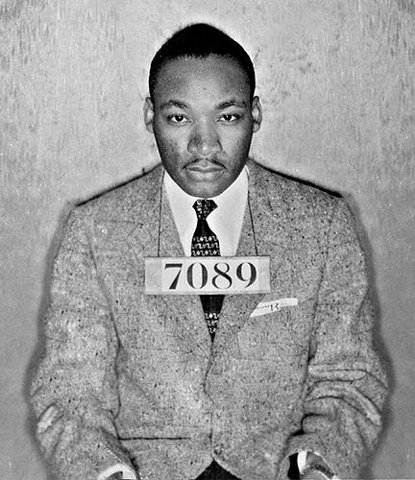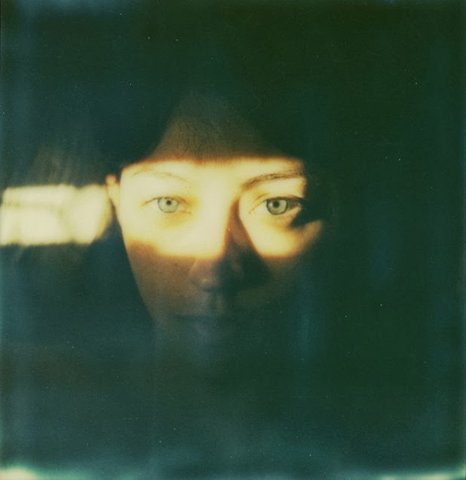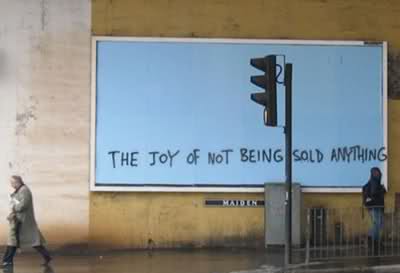Talk delivered at Gravity on January 20, 2015
Words
I don’t know how it is for you, but my world feels like it’s filled with words. Out of the radio, out of cars, the mouths of strangers, in text messages and answering machines, from phones and friends, there are words coming at me all the time. And while I am trying to bring attention to these words, the truth is, for every hundred sentences, there’s only one that sticks. At the end of the day there’s a little gummy label stuck to my underside. Oh. There’s something in the skin bag, and something out there, and they meet, and together they produce something that sticks.
Even when I read the genius Pema Chodron, who has a face like a fallen tree, the sentences shoot right past me, it’s as if I’m on the superhighway, only I’m driving a bicycle, and everyone else is in a race car, those sentences blaze right past me, until I get to this one.
“Dharma is the study of what is, and the only way of discovering what is true is by studying yourself.” I don’t really understand what that means, but it offers me a number of questions. If I can come up with an answer then I can just take that experience and flick it away. Dharma, out the door it goes. But if it’s a question, a question you keep returning to, like: how do you listen? A question that keeps refreshing itself, like a web page, like an inhale and an exhale… perhaps Pema is posing for us a series of questions which we don’t have to be in a rush to answer. But we can’t leave it alone either. Here’s the first question. If the only way of discovering what is true is by studying yourself, then how do you study yourself?
Dharma
Pema Chodron: “Dharma is the study of what is, and the only way of discovering what is true is by studying yourself. The Zen Master Dogen said, “To know yourself or study yourself is to forget yourself, and when you forget yourself then you are awakened by all things.” (The Wisdom of No Escape)
To study yourself is to forget yourself. What could that mean? What kind of studying – the studying that we’ve been talking about, that has been proposed – might lead to forgetting yourself, so that, in Dogen’s words, you become “awakened by all things?”
Nursing Home
On Wednesday my mother takes my dad to a nursing home where he spends a few hours doing very mild exercises and hears a talk and does some colouring. It’s a way to give her a break, so that she can run around or not around but she is temporarily freed from the duties of looking after him. He’s eighty-four now, most days he doesn’t say a word, his walking is pretty unsteady, getting in and out of chairs is a major feat, stairs are mountain ranges. He has Alzheimer’s, on the last test, he could name two of his three kids, which I thought wasn’t bad, but it broke my mother’s heart.
So she drops him off at the home and then she calls me and soon enough we are talking about dad’s missing memory, and how little he can do for himself, and how little he’s done or contributed, his whole life. My mother feels she does nothing but look after him and I’m sure it’s true. And this feeling stretches on into infinity, it’s not just this moment, because this moment has become every moment. I’m not just pushing you across the dance floor in a wheelchair today, I’m doing this every day of my life. And when that forever attitude comes into focus, when I put on my eternity sunglasses, then the push gets a whole lot harder, the grade gets a whole lot steeper. Because I’m adding my pain, my resentment, my fatigue, to this moment. I already know what this moment is going to be like, I’m already in a bad mood before I’ve started pushing the wheelchair, so when I push it, it makes me feel like darkness itself.
My mother calls me and she is beside herself with grief and pain and sorrows old and new. And even though I can hear the way the story she is living inside is hurting her, it doesn’t make much sense to be arguing her out of her story. Because what she needs right now isn’t arguments. It’s not about being right, it’s about doing the right thing. I think this is what studying the self, is about for me. Or at least: in that moment, when the phone rings, you pick it up. How do you study the self? You pick up the phone. I don’t have a portable telephone, I don’t have a phone that tells me who is calling, I have the other kind, so when it rings, I pick it up and I don’t know who is on the other end. That’s the way I study the self. I can’t do anything for my mother, really. I feel bad that she’s feeling so bad. I want to change something, I want to offer her a distraction or something to look forward to, but all I can do is listen. How do you listen? And then our time is up, the meter has run out, because she has to go and pick up dad from the home. I’ve hardly said a word, and then she is apologizing to me for being so upset, and I try to tell her it’s fine, but the words don’t matter now. The call is over.
Weather
Dogen said, “To know yourself or study yourself is to forget yourself, and when you forget yourself then you are awakened by all things.”
After the call I feel exhausted, I can feel a thickness in the back of my throat as if a cold is coming on, and a fatigue that is somewhere inside the bones, a cold heat spreading. I want to go check my email, I want to go cut my movie, work on the novel, turn the music up. But these old words from the thirteenth century are calling instead, and when they call I try to pick them up. “To study yourself.” I decide to be as still as I can manage, to let the feeling, the afterglow, the end of the exhale, let itself be felt inside this body. I give into it, and it doesn’t feel very good. It doesn’t feel like me, that’s the strange thing, it feels like something that is happening to this thing I call myself. Like the weather. Like emotional weather. Like you’ve just gone out and you thought it was sunny but then you got caught up in some emotional weather. Everybody else has their umbrellas out or their snow boots on so you know it’s not personal. “To study yourself is to forget yourself.”
When I could stop trying to do too much, that’s when I could show up for my mother. When I could stop trying to cover over the next moment with busyness, that’s when I could examine experience in the frame of this body. As Grant described last week, Bernie Glassman has taken his decades of sitting practice and books and translations and dharma talks and shrunk them down into a three part plan. Not knowing, bearing witness, loving action. I didn’t know what to do with my mother, I bore witness, and then I wrote this poem.
hi mom
I’m sorry that things are so difficult
it seems they’ve been difficult for so long.
and the task (of looking after my father) must feel endless
without horizons, without borders.
when will this endless task ever end?
it might seem at some moments as if it
takes up every breath, every particle of space
but over the years of your long life
there have been so many who trusted you
who looked deeply into your face
who cherished you, who gave their hearts to you
who offered you their secrets, their secret hopes
the ones they hardly dared to mention even to themselves
they didn’t do this because you were someone’s wife
or mother or sister or daughter
or because you occupied an important position
they did it because of who you are
because they loved you
I know it can be hard to touch that place
when you are in the darkness
but it is still there, and nothing
not even the endless task
can keep it from shining
when you really need it, when you have time
I hope you will make a pilgrimage back to that light
that lives inside you
the one we have seen for all these years
and know that you have been seen and loved
Not-knowing
Pema Chodron: “Knowing yourself or studying yourself just means that it’s your experience of joy, it’s your experience of pain or relief and ventilation or sorrow. That’s all we have and that’s all we need in order to have a living experience of the dharma – to realize that the dharma and our lives are the same thing.”
I think Pema is telling us: to study your life means studying the dharma. How do we study the dharma? Another way of asking this question is the way Bernie Glassman came up with: how can I enter this place of not-knowing? It can be so hard to do that with your parents. With your best friend. With your partner. Oh, I know you, I know all about you. I know what you’re going to do, how you’re going to behave, the jokes you’re going to tell. It’s interesting the kind of knowing and study that’s being conjured here. Usually when I think about knowing I think about heaping a library full of books and then filling my head with them, or listen to smart people say things. Knowing and study in the schools I went to always meant: more and more. But these Buddhists say no, knowing means knowing less. You study the self so you can know less. So you can drop what you think you know. It’s kind of radical, isn’t it? How do I study the self? By not-knowing. It cuts against the deepest habit patterns of our culture, the ones that are pushing and pulling at our attention. The wallet of our attention.
Part of what is causing my mother’s suffering is the fact that she knows what her problems are too well. She’s convinced. She’s a very smart person, and like many smart people she’s an excellent storyteller, and like many smart people she suffers because she believes the excellent and intelligent stories she tells about herself.
Is there a way to study the self that doesn’t simply add more armour, more deep camouflage, more story material to the self? I’m an honest person. I’m a stupid person. I’m not a good person. Hi, I’m unlovable. I’m a smart person. I’m a trusting person. It’s a kind of script, isn’t it? It can be very relieving, it can really bring the anxiety down to a manageable level, if you can step into a script again. I’m the prodigal son, I’m the rebel, I’m the one who always gets along, I always try to avoid conflict. Dogen says that knowing the self means to forget the self, to leave these shorthands, these scripts and stories about who we are, behind, so that we could open up to what’s actually happening. “Dharma is the study of what is, and the only way of discovering what is true is by studying yourself.” Pema doesn’t say: I hope you can look at our beautiful menu of self-study options tonight, I think you’ll find something you’ll really love. She uses the word “only.” “The only way of discovering what is true…” And then she insists that only you can know that way, that it’s your path, and only you can walk it. That’s why reading books can be fine and lovely, but someone else’s experience, it’s like someone else’s dinner. It’s like reading the menu for dinner. At some point, you have to sit down and eat the dinner. You have to taste it for yourself. That is how you might study the self. You eat your dinner, you pick up the phone, you hear it, you taste it for yourself.
Sitting
I wonder about sitting on the cushion. About the practice of meditation. Could the practice of meditation be a way of studying the self? I don’t know how it is for you, but I find that when I can get deeply concentrated I can feel these different streams of breath on the inhale, and on the exhale, and that part of the breath feels like it’s still exhaling, even as the inhale is starting. And then the breath vanishes because a thought occurs, and it hooks me, it takes me away from the breath. And the thought is always about me. Does that happen to you? Perhaps it’s just a tic I have, the oldest habit. Some kind of thought arrives, and there’s an imaginary scenario that plays out that’s already happened, and I’m right in the middle of it. Or else some imaginary scenario plays out that hasn’t happened yet and I’m right in the middle of it. It’s as if, as Shakespeare wrote, all the world’s a stage, and I’ve been cast in the central part. I’m the central part of every scene, every bit of planning, every bit of recollection. In fact the thought machine seems designed to generate this thing I like to call myself, and it’s as if this self is so fragile, so tenuous, that if it doesn’t keep reproducing all the time, the whole project would simply collapse. The way I think is like an advertisement for myself that is busy working seven days a week, all day every day, as if I might forget about it if the ads stopped for a moment.
One of the things that’s helpful about meditation is that it can show us what’s happening when we take away some of the noise and distraction. It can show us the structure underneath the structure. Dogen says to study the self is to forget the self. Am I studying the self, and therefore forgetting the self, when I’m following the breath, or when I get distracted and plug into the me-machine? When I’m filled with thoughts of this myself, am I actually studying the self?
The Dogen passage that Pema is quoting comes from something Dogen wrote called The Fundamental Point. He writes these texts to get down to the basic stuff, what is really going on here, in practice. Though as usual he writes in strange sentences that look like modern poetry, sharp and barbed and looping. Here’s another part of the text.
To carry your self forward and illuminate the myriad things, the myriad dharmas, is delusion. That the myriad things come forth and illuminate themselves is awakening.
When I am sitting on the cushion distracted, working the me-machine, this is what Dogen describes as “carrying your self forward and illuminating the many things.” I light up the world using the lamp of myself. I am the one seeing your face, I am the one waiting at the traffic light, waiting in line outside the studio door, waking up this morning. What Dogen names as delusion is what most of us, I think, would name as our normal waking life. We are bringing our self forward.
Here is Dan Leighton from a talk at the Clouds in Water Zen Centre. “We see ourselves as a subject, observing, manipulating, working with things of the world. We imagine that the world is outside us. We imagine this separation between ourselves and the world. We all have some story or idea about this self that we carry forward to illuminate the many things. All of you could probably tell me your address and social security number and many other things about this self that you are carrying forward. This is our ordinary human world of delusion.
On the other hand, Dogen says awakening is when the many things come forth and illuminate themselves. As we do this practice of sitting and being present and being aware of this process, we start to see how the world is arising with each inhale and exhale. The world is experiencing itself.”
Or as Grant suggested to us a couple of weeks ago, when we were sitting, we could simply let the body breathe. Most of the time, we don’t have to make any special effort to let the body breathe, we just have to get out of the way and follow that breathing, and become that breathing. How do we study the self? By letting the body breathe.
Open
Could we go back to Pema again? I love the way she writes. You know, she’s spent years of her life sitting on a cushion, in quiet rooms, observing her breath. And after all those years she’s cultivated a deep quality of stillness, a freshness, that lies between her words. I can feel her putting her words, these plain words that she prefers, like clouds on a blank sky, and I love to listen to the spaces between her plain words and sentences. She’s so unafraid to say the first thing that comes up out of this silence. Because her writing, her observations, are also a way of studying the self.
Pema: “I’m so struck by the quotation that appeared on the bulletin board yesterday. It said, ‘The everyday practice is simply to develop complete acceptance and openness to all situations, emotions, and people.’ You read that and you hear it and maybe I even talk about it, but basically, what does that mean? When you read it, you think you sort of know what it means, but when you begin to try to do that, to test it against your experience, then your preconceptions of what it means completely falls apart; you discover something fresh and new that you never realized before. What personal identification with the dharma means is, live that way, test it, try to find out what it really means in terms of losing your job, being jilted by your lover, dying of cancer. ‘Be open and accept all situations and people.’ How do you do that? Maybe that’s the worst advice anybody could give you, but you have to find out for yourself.”
It makes me wonder: has that ever happened to you? Was there ever a moment in your life when you dropped all your ideas of who you were, or what your role was, or because of the situation all those ideas fell away or fell apart, and you discovered, as Pema names it, “something fresh and new that you never realized before.” Has that ever happened to you? Or perhaps it’s just a dusty idea in an old book.




